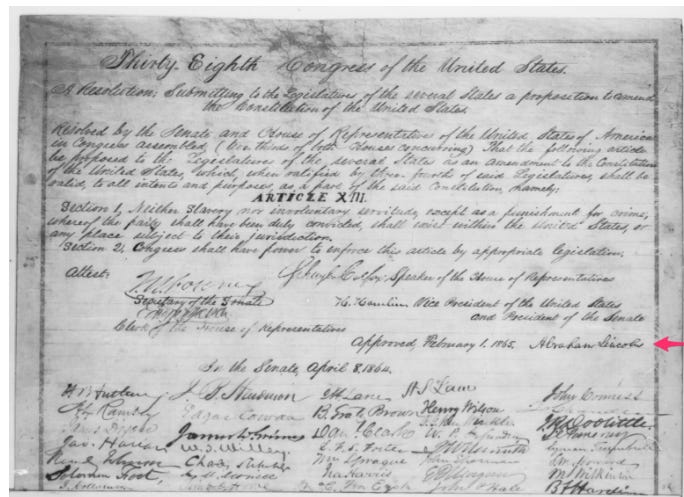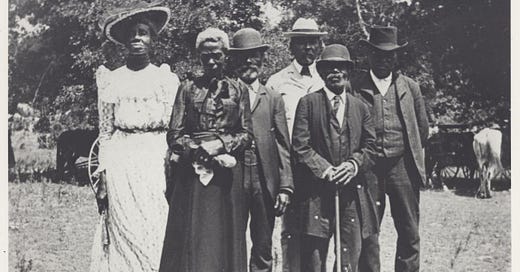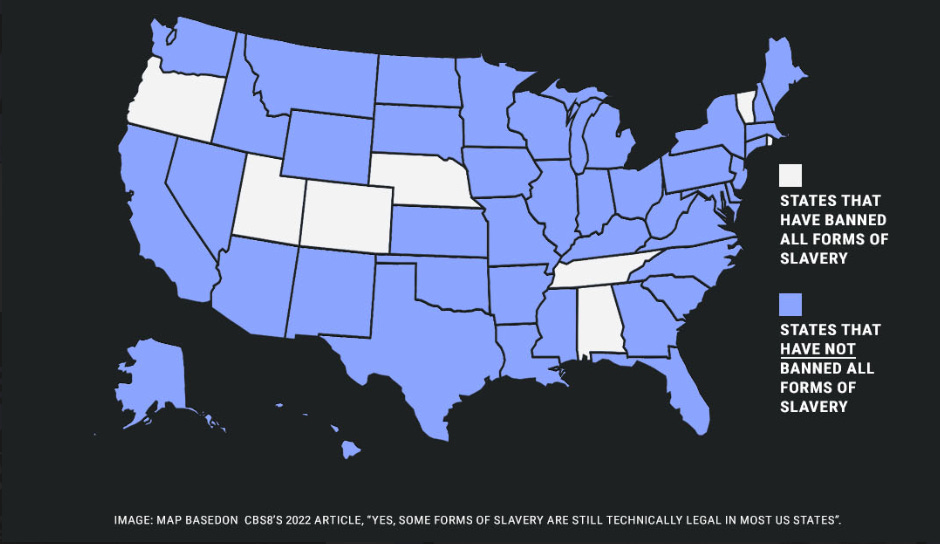Juneteenth + Why Symbolic Change Won't Liberate Us
From legal loop holes to reclaiming history, here is a deeper understanding of Juneteenth + what Juneteenth is still teaching us today
What is Juneteenth?
Juneteenth is a combination of ‘June’ and ‘19th’ and marks the day when 2,000 Union troops arrived in Galveston, Texas in 1865 to take control of the state and ensure that all enslaved people were freed. Although “legally” after the Civil War, slavery was “ended” through the Emancipation Proclamation in 1863; Juneteenth is the chosen day to celebrate the physical emancipation of enslaved Black people in the U.S. and not just the legislative “emancipation”.
Because of this, Juneteenth is also referred to as Freedom Day, Jubilee Day, Liberation Day, and Emancipation Day.
What about the Emancipation Proclamation?
The Emancipation Proclamation is the executive order issued by Abraham Lincoln on January 1, 1863, during the Civil War, declaring that all enslaved people in Confederate states were legally free. This bill was supposed to free all enslaved people in the Confederate states, however conservative + local control over Southern states meant that no one enforced this proclamation until the Union Army slowly began to regain control of Southern states. This means that without accountability, many states chose to maintain the violent + oppressive systems of slavery, which is why Juneteenth and this celebration of physical liberation are so important.

So after June 19, 1865, everyone previously enslaved was freed?
Not really—June 19, 1865, just marks the date that Union soldiers arrived and issued a proclamation order in Galveston, Texas specifically. The language used in the Emancipation Proclamation only meant an end to slavery in previous Confederate states. Slaveholding states that weren’t a part of the Confederacy did not legally have to stop. This specific legal + political language left a gap where states like Kentucky + Delaware were still able to continue government-sanctioned chattel slavery. This means in the U.S., slavery wasn’t legally abolished until December of 1865 through the 13th Amendment.
Okay but after the 13th Amendment, did slavery end?
To answer this, we have to have a conversation about symbolic change versus actual change + social justice and liberation. The 13th Amendment includes a small clause stating that slavery will still only exist as a form of punishment for crime. This loophole has since been exploited by states to maintain slavery + other systems of oppression and exploitation (i.e. racism, capitalism, + white supremacy) and has led to the racialization and criminalization of homelessness, poverty, and unemployment.
The 13th Amendment simply allowed for the institution of slavery to be recreated into the country’s current criminal justice system and the mass incarceration that has followed. This is why symbolic change is not enough—the same systems of violence + oppression have been maintained through the criminal justice system. Only through direct + intentional action can we truly end all forms of slavery in the U.S.
So slavery is illegal now, right? Not exactly…
As of 2025, many states still allow slavery as a form of punishment, and getting this clause removed from state constitutions is disturbingly difficult …
In 2024, California voters for example rejected Proposition 6, which aimed to remove the slavery exception clause from the state constitution. The measure failed with 54.9% voting against it.
Votes to preserve this language often argue that prison labor is needed for state governments and private companies in manufacturing, agriculture, firefighting, road work, and more. With labor costing as low as $0.23/hour or cost nothing at all.
Why is Juneteenth important?
This day commemorates the legacy of Black community mobilization that has occurred throughout history when it comes to dismantling oppressive systems. Juneteenth is traditionally a long-standing day of remembrance within the Black community and became especially important during the Civil Rights era.
Juneteenth, originating in Texas in 1865, is a long-standing day of remembrance in the Black community. During the Civil Rights era, Juneteenth celebrations continued alongside other events like Solidarity Day, a major gathering on June 19, 1968, organized by the Poor People’s Campaign after Dr. King’s assassination. Though different, both reflect Black resistance and remembrance linked to this date.
Celebrations of Movement Toward Liberation
Juneteenth celebrations use music, food, prayer, rallies, conferences, and other activities to foster joy, rest + remembrance in the Black community. Whether at a large community event or a backyard barbecue, Juneteenth is celebrated nationwide! We encourage you to continue this celebration + honor this rich history by surrounding yourself with community + continuing to learn about Juneteenth and the continued movement for liberation. In order to continue to educate ourselves everyone should know how to identify injustice and demand true change in order to effectively organize and help other communities to create a more joy-filled + just future.
Resources for further learning:
To watch
13th by Ava DuVernay
Making Black America: Through the Grapevine by Henry Louis Gates, Jr.
When They See Us by Ava DuVernay
To read
The New Jim Crow; Mass Incarceration in the Age of Colorblindness by Michelle Alexander
On Juneteenth by Annette Gordon-Reed
The Purpose of Power: How We Come Tother When We Fall Apart by Alicia Garza
To listen
Beyond Black History Month podcast “Juneteenth: The Untold Story of One Man’s Love”
Be Antiracist podcast “The Juneteenth Mixtape”
Black History Moments podcast “What is Juneteenth and the Truth About President Lincoln”




A powerful reminder to look beyond paper promises and pursue change until it actually happens!